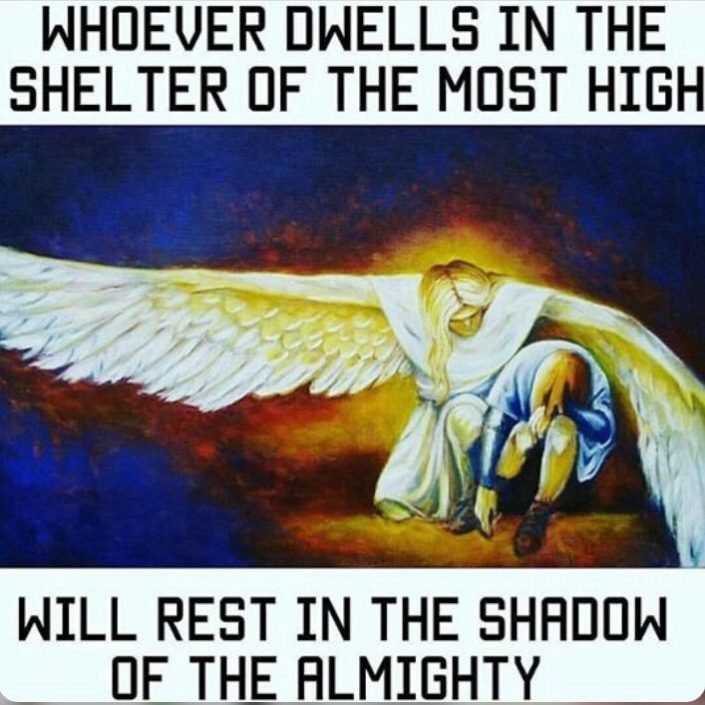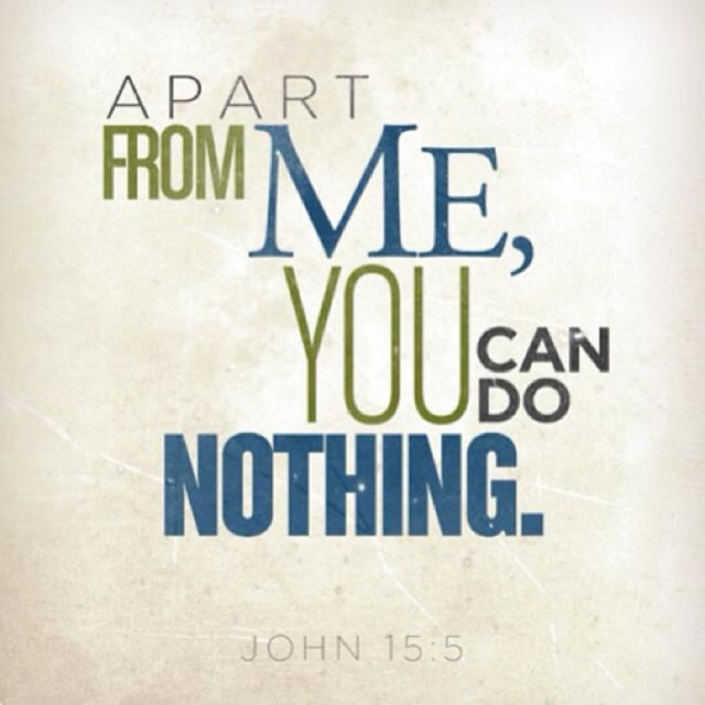
Yes, many of us want to achieve a good and healthy life, to be successful. No one wants to fail. But how many of us really dare to dream? To achieve these things, we need to be able to focus well. We cannot just dream in the middle of the day, because there is a lot of effort and hard work needed to make our dreams a reality. But when it comes to focus, I would say that Lot is a better example than his uncle, Abraham.
Who is LOT?
Genesis 12:4-5. “So Abram (Abraham) departed, as the Lord had spoken unto him; and Lot went with him… And Abram took Sarai his wife, and Lot his brother’s son.” Lot is actually the son of Abram’s brother, Haran, and not Abram’s biological son, as stated in Genesis 11:31. Unlike Abram, Lot was not called by God. Nevertheless, Abram still chose to bring Lot with him. Perhaps, instead of leaving Lot alone in Haran, it was better for him to accompany Abram to a new land. Lot’s father had already passed away before they arrived in Haran (Genesis 11:28), and his grandfather had just died (Genesis 11:32). Therefore, it was more appropriate for Lot to follow Abram from Haran (Genesis 12) as they journeyed to the land of Canaan.
But didn’t God say to Abram, “Go…from your country and your kindred and your father’s house” (Genesis 12:1)? God did not want Lot to be brought along because He knew that Lot would later become a source of problems for Abram. As mentioned earlier, it was Abram who was called by God and not Lot. However, perhaps like many of us fathers, we find it difficult to leave a nephew who has become like a son to us when we have to go to another place permanently, especially when they are still too young to stand on their own. Yes, Abram made the wrong decision here, but Lot was given the opportunity to follow in the footsteps of his uncle, a servant of God, on a journey to answer God’s call.
According to 2 Peter 2:7-8, Lot was called the righteous man which lived among the wicked. It is noteworthy that only one verse in the Bible refers to Lot as a righteous man. When the Bible describes someone as righteous, it means that the person is deemed righteous in the eyes of the Lord. It is probably for this reason that God sent two angels to rescue Lot and his family before He destroyed Sodom. This act of mercy illustrates God’s faithfulness. The reference for this verse is Genesis 19:1.
Lot LEVELED UP his uncle, Abram
Lot was not an ordinary nephew; he was a young man with great potential and a strong desire to succeed in life. He possessed excellent business acumen and a fierce ambition to reach the top. The conflict between Lot’s shepherds and those of his uncle, Abram, described in Genesis 13, was not a minor dispute. In fact, verse 7 states that it quickly escalated into a major problem. The root cause was the land being too small for both of them. This raises the question of why there was a problem, given that they were supposedly a united family and all the land belonged to them together. The reason is that Lot had become so successful on his own (verse 5) that he had become Abram’s equal in terms of wealth and possessions. In essence, Lot had surpassed his uncle and matched him in prosperity. Can you imagine having a nephew who still lives under your roof and eats at the same table but is making the same amount of money or even more than you? Such a nephew should be on his own, right?!
So, as a good uncle, Abram offered Lot a peaceful solution. In verses 8 and 9, he gave Lot the first choice to pick from the land that was promised to Abram only. Without hesitation, Lot chose the best part of that promised land in verse 10 – the valley of Jordan – a well-watered land from every corner, like the garden of the Lord, and like the land of Egypt. It’s important to remember that they had just come back from Egypt, and Lot was with Abram when they were escaping the famine in Genesis 12:10. Another thought here is that he probably regretted his uncle’s decision to return to the land of Canaan. As he remembered, Canaan was a drought land that produced nothing but hunger and suffering while it was called God’s promised land in Genesis 12:6-9. For someone who doesn’t have the calling of God in their life, it would be difficult to see the fulfillment of God’s promise through faith. Moreover, they had just returned from Egypt, and Lot’s eyes saw the abundance and comfort in Egypt, which distracted him. Lot might have thought, “Why do we have to return to Canaan?!” in Genesis 13:1. His ambition blinded him to the promise of God. When he saw the valley of Jordan, he thought it was the answer he was looking for – just like the garden of God. If we’re not careful, our eyes will only see what we want to see, not the truth. Moreover, those who have set their eyes on Egypt (which represents the world) can easily be deceived into thinking that material possessions are the blessings of God.
Lot MOVED to Jordan Valley
Genesis 13:10-11 recounts that Lot lifted up his eyes and beheld all the plains of Jordan, then chose all the plains of Jordan for himself. He made his choice based on what he had seen. In Verse 12 (KJV), he pitched his tent toward Sodom, indicating his strong focus on what he desired. The phrase “pitched his tent” in this context implies that Sodom would be the first thing he saw every morning and the last thing he saw before retiring for the night. It is evident that Lot was highly focused on his goal and acted on the opportunity immediately.
Lot was an ambitious businessman who recognized opportunities for growth and expansion. He saw potential in the large city of Sodom to accommodate his hunger for success and wealth. He did not seem to care if Sodom was a very sinful city even when he was warned about it (verse 10). He was just very focused on what he wanted for himself. He didn’t mind getting rid of his uncle so he could grow in his wealth by taking away the best part of the promised land in order to expand his territory. Very quickly, he accelerated his life in the pursuit of blessing and wealth!
After moving east toward Sodom and camping there, Lot had already settled inside Sodom by the time of the war between the 4 kings of Chedorlaomer and the 5 kings of Sodom, as stated in Genesis 14:12, and they took Lot.., who dwelt in Sodom. The chapter describes how Lot was caught in the middle of the conflict, and Abram came to rescue him. In a successful campaign, Abram defeated the 4 kings and retrieved the spoils of war, which were returned to Sodom. Additionally, Genesis 14:1 notes that the chapter describes the origins of the Babylonian Kingdom.
Now Lot was one of the leaders of Sodom
In Genesis 19, God destroyed the cities of Sodom and Gomorrah. Lot, who had previously become one of the leaders of Sodom, met the two angels sent to save him and his family at the city gate. Genesis 19:1, The two angels came to Sodom in the evening, and Lot was sitting in the gate of Sodom. When Lot saw them, he rose to meet them and bowed himself with his face to the earth. In the time of Abraham, Isaac, and Jacob, the people who sat at the gate were responsible for governing the city and deciding its fate. They were known as ekklēsia, a Greek word that translates to “called-out ones to sit at the gate,” and is now commonly translated to the word church. Lot’s presence at the gate indicated that he had become an influential leader in the city, in addition to his wealth and success as a businessman. This trend of pursuing power and influence after achieving financial success has been present since ancient times.
But it was on Lot’s leadership that Sodom got its end!
Lot hesitated to leave Sodom
Genesis 19:1 tells us that two angels came to Sodom with a mission from God to save Lot and his family from the impending destruction. Despite being informed by the angels of the impending doom of the city, Lot hesitated and lingered (verse 16). One may wonder why he hesitated, given that God was about to destroy the place where he lived. However, the reason for his hesitation was likely that as a wealthy and prosperous man, he had accumulated a lot of material possessions that he did not want to leave behind. This is a common challenge faced by those who are materially blessed, as they often have much to lose when faced with major life changes. Lot got too much to leave behind!
Have we ever considered that we may be like Lot? We work tirelessly to accumulate wealth, and even our prayers and worship can sometimes be focused solely on gaining material prosperity. We worship and serve God with the goal of being blessed, which we interpret to mean having an abundance of money. We pray to be protected from disasters and to stay healthy, all with the aim of accumulating more wealth. Lot had everything he wanted, and he had it quickly, but it was this very wealth that caused him to hesitate when it came time to leave Sodom. Perhaps he thought, why did God send only two angels? Didn’t He know that there was so much to bring out? Didn’t He bless him and therefore protect him? We have come to equate blessings solely with material wealth, which can blind us to the help God sends us. Although God had sent His angels to save Lot and his family, their hearts were attached only to their wealth. Unfortunately, what we pray for can often become the very thing that hinders us from accepting God’s help.
In Matthew 19:21, God called on the rich to be perfect by following Him, but they must first sell all their possessions and give everything to the poor. Unfortunately, the young rich man left sadly in verse 22. God’s call is a call to leave everything behind and follow Him, not the other way around. In Lot’s case, his salvation meant sacrificing his possessions for his life. Like Lot, we often love our money and possessions more than ourselves. Our thrifty attitudes are not always about saving money, but more about our love for money. Money is a good servant, but when it becomes our master, it is a cruel one that often prevents us from enjoying it.

In Genesis 12:7-8, we read that wherever Abram went, he built an altar and called upon the name of the Lord. In this chapter, he stopped at least twice, and in each place, he built an altar. An altar is a pile of stones erected together to burn an animal sacrifice to the Lord in the Old Testament. It shows an act of worship by the one who is offering the sacrifice, indicating a relationship with God. Lot was there with his uncle Abram in Genesis 12, and he may have helped him build these altars, as it was not an easy task to erect one alone. He probably even watched the whole sacrificial act on the altar by Abram. However, the Bible never mentions even once that Lot built an altar for himself.
There is no verse in the Bible that mentions Lot building an altar to call upon the name of the Lord, indicating that Lot never had a relationship with God. This is what Lot missed. He was so focused on building his own life, success, and wealth that he neglected the simple yet essential act of praying, worshiping, and having a relationship with God.
Altar
An altar symbolizes our relationship with God, our commitment to worship Him, and our willingness to offer sacrifices. It is where we can find the blessings, protection, and guidance that we need the most. Hard work can bring success, but prayer is what blesses our efforts and protects the blessings we receive. Through prayer, we can seek God’s guidance and wisdom in making decisions and discerning our path. A life that is centered on prayer and worship brings us closer to God and helps us to experience His love and grace. Ultimately, our relationship with God is the most important thing we can cultivate in this life. We all need Him more than anything else.
Abram’s focus on building altars in his life is evident not only in Genesis 12:7-8 but throughout his life as mentioned in many chapters of Genesis. However, we also understand that Abram was not just a man of prayer, but he was also a husband to Sarah (Genesis 12:4), a father to Ishmael (Genesis 16) and Isaac (Genesis 19), and a shepherd of his flock, which was in great numbers (Genesis 13). Due to the size of his flock, he had many helpers, workers, maids, and slaves, both men and women. Despite this, the Bible emphasizes more on Abram’s altar building more than anything else, as his life was primarily about his relationship with God.

Yes, Abram’s life was centered on the altars he built to call upon the name of the Lord. One might wonder if such a singular focus would cause him to miss out on other important things. However, Abram’s prayer life kept him focused on God, and that focus brought blessings in unexpected areas of his life, such as his shepherding business and other trades. Even in the midst of a dispute with Lot, God protected Abram and led him away from danger long before the destruction of Sodom and Gomorrah. This saved Abram from losing everything he had built over the years. Imagine if he had waited until just a day or a night before the disaster struck. He would have suffered greatly, as Lot did.
By continually giving yourself over to prayer and being in the presence of God, He will manifest in all aspects of your life. Being in His presence provides us with His protection, as mentioned in Psalm 91:1. Through building and using his altar, Abram developed a strong relationship with God, which became his top priority. He was so devoted to God that he was willing to sacrifice his promised son, Isaac, on the altar in Genesis 22. As a result, God swore to bless him. Abram never lost focus on God, even with the greatest blessing God had given him – his promised son.
Most of us do not pray in this way, as many of our prayers are solely for the purpose of obtaining something, and once we have received it, we stop praying. We only come back to God when we need something else. This is not how Abram prayed. He maintained a strong relationship with God and was willing to offer the promised son back to Him on the altar, as seen in Genesis 22. In contrast, many of us become upset with God when He says no to our prayers. However, if we continually come back to His presence, making it our dwelling place in the shelter of the Most High, we will find rest in the shadow of the Almighty, as Psalm 91:1 states. Only one out of ten lepers returned to thank Jesus after being healed in Luke 17:17. Additionally, we can learn from Hannah’s example in 1 Samuel 1:11, where she offered her son Samuel back to the Lord to fulfill her oath when He answered her prayer. Therefore, we should strive to have a deep and consistent prayer life and to come back to God even after receiving His answer to our prayers.
Would you also hesitate, just like Lot?
This is what Lot missed in his life journey. In the end, he never developed his relationship with God. Instead, he invested much in his relationship with money. He had so much to leave behind when he was faced with the choice between his life and his possessions. He was not even tempted to choose between God and his wealth, only between his soul and his money. And if the angels had not grabbed him by the hand to rescue him (Genesis 19:16), he would have chosen his possessions over his life. Matthew 6:21 states that where your treasure is, there will your heart be also. This verse was never written the other way around. The money would never follow us, but we will always follow where our money is. That is why Psalms 62:10 advises us not to set our hearts upon riches as they increase. How can we do this? By learning to give and give more, as Jesus said in Matthew 6:20, lay up treasures in heaven for yourselves. Also, 1 John 2:15 warns us not to love the world or the things that are in the world. If anyone loves the world, the love of the Father is not in him. When Jesus would return today, how hard would God have to tug you out? Would you hesitate, just like Lot?
The misconception that having more possessions equates to being more spiritual is misguided. The idea that God’s blessings determine one’s level of spirituality is promoted by the Prosperity Gospel, which is erroneous. Jesus posed the same question to all of us, not just the young rich man in Matthew 19:21: “Will you sell everything and give to the poor, then come to follow Me?” True spirituality is measured by what we are willing to sacrifice and let go of.
Jesus said that we cannot serve two masters in Matthew 6:24. We will always end up choosing one: God or mammon. This does not mean that we need to stop making money or lose our diligent and hard-working attitude. Rather, it means that we need to have the right focus and maintain it at all times. Focusing on God may require many sacrificial decisions, but in the end, we will surely receive God’s blessings, which will last forever. Therefore, let us not miss our altar, as it will help us to maintain the correct focus.
Many of us view prayer as a means to change God’s mind. However, prayer is not a tool to persuade Him to comply with our desires. Instead, prayer should transform us. The altar is a place of offering and sacrifice to God, and we are the ones being offered. On the altar, we must surrender to His will, which is superior to ours. We must lay down our lives before Him and give up everything we hold dear. We must be willing to let go of closed doors and change direction to follow His footsteps. We must love Him more than we love ourselves on the altar. The altar is where we learn to relinquish everything to Him.
Focus on God
On the altar, we would learn only to find Him, who will stay clear before our eyes where everything else will be blurred and lost its focus. Yes, the others are meant to be burned to ashes and gone just as in an actual sacrifice. On the altar, we should really learn to find ourselves alone with Him to the end. For only when we lose everything except Him, then we will start to have Him as everything in this life. This is what the altar will teach us: The Lord is my shepherd, I shall not want (Psalms 23:1).
If only Lot had followed the example of Abram’s prayer life, he would not have lost everything to Sodom and Gomorrah. He would still have his wife with him, be able to find husbands for their daughters, and their offspring would not have become enemies of the promised people. But would he have been willing to give up the space he needed the most to grow his flock? Would he have kept submitting to his uncle and followed the man with the calling? How could he have done all of this when he was not even willing to give up some time and work to build his own altar, to follow the very thing Abraham did to answer his calling: the Altar?
Remember that many of us are more like Lot and not called as Abraham. We love to follow the men and women of God because of the grace upon their lives but not at the price they paid in solitude. If only Lot had been willing to establish his own altar after his uncle Abram’s, just like Joshua stayed in the Meeting tent after Moses left (Exodus 33:11, “but his servant Joshua, the son of Nun, a young man, did not depart from the tabernacle”) or like what Paul said to the people of Corinth (1 Corinthians 11:1), “be imitators of me, as I am of Christ.” If only Lot had been willing to follow Abram’s footsteps in the altar, he would have developed God’s protection upon him that would have been useful in the long run. If only Lot had been willing to make his dwelling in the shelter of the Most High, he would have found rest in the Shadow of the Almighty. But when he missed the altar, he missed out big time! How about you?

November 3, 2020 (re-written)

What a direct reminder and an answer for me curently. Thanks
Thanks for the sharing pastor! I am blessed.
Am so my blessed by thus teaching may God bless u more so pastor Sigik Arnold who shared this
Amazing write up. You are truly prophetic. This is my first time to see this new perspective on Lot.